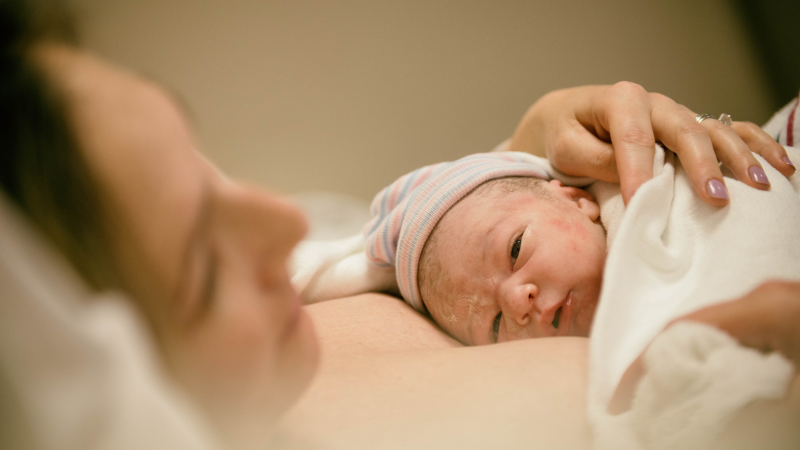
While many parents celebrate the arrival of a newborn, some face unexpected challenges. Childbirth can be a mixed experience, occasionally resulting in physical or emotional trauma. These difficulties can have lasting effects, impacting parents' wellbeing and family dynamics.
According to the Australasian Birth Trauma Association, birth trauma is a woman’s experience of interactions and/or events related to childbirth that cause overwhelming distressing emotions and reactions, leading to short and/or long-term negative impacts on a woman’s health and wellbeing.
Birth-related trauma can be physical or psychological or a combination of both. It impacts mothers, birthing parents, fathers and non-birthing parents.
Physical birth trauma
Physical birth trauma is a direct result of the birthing process, which may or may not be identified immediately. These injuries may or may not be identified straight away. You may be the first to notice that something isn’t right. Don’t be afraid to ask questions. It is important to understand that physical birth injuries may require you to seek expert medical advice and assessment. Find out more about physical birth trauma.
Psychological birth trauma
Frightening or disturbing experiences resulting from childbirth are known as psychological birth-related trauma.
Psychological trauma may present as:
- Postpartum post-traumatic stress disorder (PTSD)
- Postnatal depression and/or anxiety (PNDA)
- Obsessive Compulsive Disorder (OCD) (For example, obsessive thoughts that can affect our behaviour, such as checking on baby constantly or recurring thoughts that impact your enjoyment of daily life).
1 in 4 mums experiences some PTSD symptoms after birth, and 1 in 16 meets all the criteria for having PTSD. Getting advice and support early can help prevent your birth-related trauma from becoming PTSD.
While difficult births can't always be avoided, ensuring parents feel well supported and are given agency during the birth process can help to reduce the likelihood of birth trauma. Studies show that, regardless of birth outcomes, robust social networks and positive interactions with healthcare providers significantly reduce the risk of postpartum PTSD.
If you know someone who has experienced a difficult birth, encourage them to talk about their experiences and feelings, and to seek professional help if they need it.
This year’s theme: Informed consent
This year, Birth Trauma Awareness Week runs from 15-21 July. The theme is Informed Consent. The debate around informed consent in prenatal and birthing care is ongoing among maternity experts, families, and the government, especially after the NSW Parliamentary Inquiry into birth trauma, which was established in 2023 and received more than 4000 submissions.
How Flourish Australia and you can help
At Flourish Australia, we recognize the unique challenges parents face when dealing with mental health issues while caring for newborns. Our Women and Children’s Program offers supported accommodation and a healing environment, along with free courses in parenting and essential life skills to help families thrive in their communities.
Your generous donation can make a significant difference in the lives of these families. Please visit donate.flourishaustralia.org.au to donate and support our mission to provide this vital assistance. Thank you for your kindness and support.
Talk to us today
For more information, contact us on 1300 779 270 or make an enquiry now.


